Paradoxes of Religious Toleration in Early Modern Political Thought
Paradoxes of Religious Toleration in Early Modern Political Thought
Edited by John Christian Laursen and Mara Jos Villaverde
LEXINGTON BOOKS
Lanham Boulder New York Toronto Plymouth, UK
Published by Lexington Books
A wholly owned subsidiary of The Rowman & Littlefield Publishing Group, Inc.
4501 Forbes Boulevard, Suite 200, Lanham, Maryland 20706
www.rowman.com
10 Thornbury Road, Plymouth PL6 7PP, United Kingdom
Copyright 2012 by Lexington Books
All rights reserved. No part of this book may be reproduced in any form or by any electronic or mechanical means, including information storage and retrieval systems, without written permission from the publisher, except by a reviewer who may quote passages in a review.
British Library Cataloguing in Publication Information Available
Library of Congress Cataloging-in-Publication Data
Paradoxes of religious toleration in early modern political thought / edited by John Christian Laursen and Mara Jos Villaverde.
p. cm.
Includes bibliographical references and index.
ISBN 978-0-7391-7216-2 (cloth : alk. paper)ISBN 978-0-7391-7217-9 (pbk. : alk. paper)ISBN 978-0-7391-7218-6 (electronic)
1. Religious toleranceHistory. I. Laursen, John Christian. II. Villaverde, Ma. Jos (Mara Jos)
BL640.P37 2012
323.44'209dc23
2012014488

The paper used in this publication meets the minimum requirements of American National Standard for Information Sciences Permanence of Paper for Printed Library Materials, ANSI/NISO Z39.48-1992.
Printed in the United States of America
Contents
Introduction
John Christian Laursen and Mara Jos Villaverde
| 1 | Spinozas Paradoxes: An Atheist Who Defended the Scriptures? A Freethinking Alchemist? |
Mara Jos Villaverde
| 2 | Spinoza on Lying for Toleration and His Intolerance of Atheists |
John Christian Laursen
| 3 | Jansenist Fears and Huguenot Polemics: Arnauld, Jurieu, and Bayle on Obedience and Toleration |
Luisa Simonutti
| 4 | The General Freedom, which All Men Enjoy in a Confessional State: The Paradoxical Language of Politics in the Dutch Republic (17001750) |
Henri Krop
| 5 | A Leibnizian Way to Tolerance: Between Ethical Universalism and Linguistic Diversity |
Concha Roldn
| 6 | Toleration in China and Siam in Late-Seventeenth-Century European Travel Literature |
Rolando Minuti
| 7 | Toleration in Denis Veirass Theocracy |
Cyrus Masroori
| 8 | David Hume on Religious Tolerance |
Gerardo Lpez Sastre
| 9 | Rousseau, A False Apostle of Tolerance |
Mara Jos Villaverde
| 10 | Intolerance of Fanatics in Bayle, Hume, and Kant |
John Christian Laursen
| 11 | Tolerance and Intolerance in the Writings of the French Antiphilosophes (17501789) |
Jonathan Israel
| 12 | Immanuel Kant: Tolerance Seen as Respect |
Joaqun Abelln
Index
About the Contributors
Introduction
John Christian Laursen and Mara Jos Villaverde
Much of what people in the contemporary developed world think about religious toleration has evolved from crucial innovations in toleration theory of the seventeenth and eighteenth centuries. Thinkers from that period have been rightly celebrated for influential and liberating concepts and ideas that have enabled many of us to live in peace.
But the literature on these theories has always tended toward hagiography. Historians of ideas have complacently shown that some figures ideas are the best foundation of toleration, and that history inevitably leads to the triumph of the present. The essays in this volume break new ground in a different direction. They focus on paradoxes, blind spots, unexpected flaws, weaknesses, or ambiguities in early-modern toleration theories and practices. They explore the complexities, the complications, the surprises, and the inconsistencies that came up in the seventeenth and eighteenth centuries as people grappled with the idea of toleration.
There are good reasons for exploring the paradoxes. One is that understanding the weaknesses, contradictions, and flaws in other theories may help us identify and sort out the flaws in our own way of thinking. If we recognize and become sensitive to these flaws, we may understand better why no theory has ever garnered the support of everyone. The other is that in the long run we may be able to construct better theories of toleration. Sensitivity to the weaknesses and unexpected flaws in classical theories may help us avoid or overcome similar problems. That is one of the justifications of doing history.
It follows that this book is not the usual survey of early modern theories of toleration. It is not an exploration of all of the important theorists of the time, nor of everything important about their theories. We have tried to avoid presenting a linear history that leads from fanaticism and intransigence to liberty of conscience. We hope to show that the reality was much more complex.
This may help us identify our own blind spots, or at least sensitize us to the almost inevitable contradictions or incoherences in every way of thinking. A metaphor for the complexity is the kaleidoscope: one thing we emphasize is that often the many shapes and colors of these theories clash with each other, undermine each other, and occasionally support each other as they interact in twists and turns.
Toleration and its cognates in many European languages derived from the Latin tolerare, and came to range from meaning suffering, putting up with, patiently bearing, permitting something that one does not approve, to more variations along these lines. One central paradox here is raised by the question, Why should we put up with something that we do not approve? Doesnt this imply apathy, carelessness, or negligence? The answer has often been that we could not do anything about it, but the more interesting set of answers came when we could do something about it but chose not to. Why not? As we shall see, this could be as simple as that the anticipated benefit was not worth the cost, as in obtaining uniformity of ideas at the price of civil unrest, chaos, or war. And it could become a much more complex set of reasons derived from religion, theories of human nature, psychology, or political theory.
Another set of paradoxes is commonly observed: if one is too tolerant, even of the intolerant, one inevitably risks the charge of enabling intolerance by not preventing it. Tolerance must have its limits in order to avoid complicity with persecution. One can be too tolerant, just as one can be not tolerant enough. But one can also lose ones claim to tolerance by becoming too intolerant of the intolerant, albeit in defense of tolerance. Tolerance disappears or dissolves by moving to either extreme, so the only way to avoid paradox seems to be to find a kind of middle way.

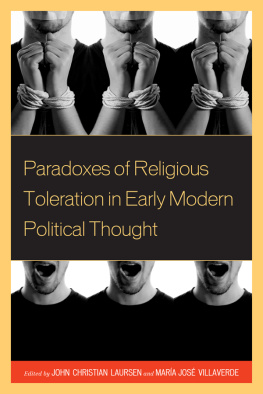

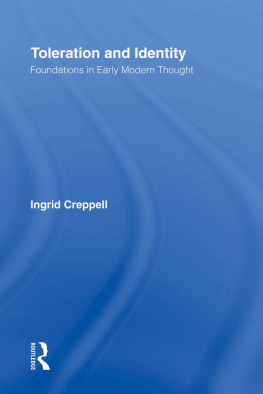
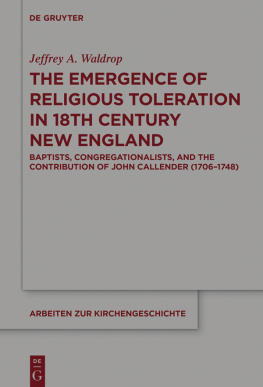
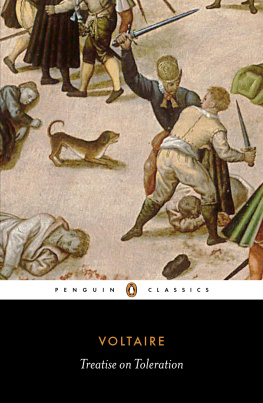
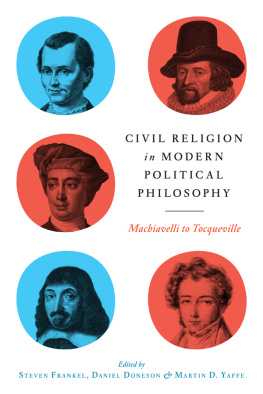
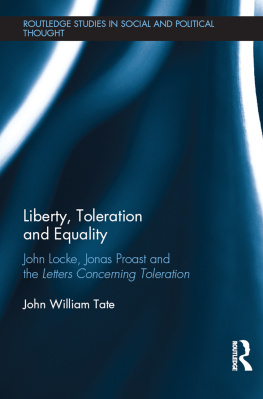
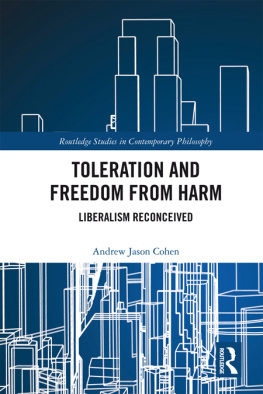
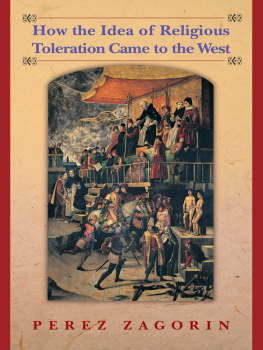
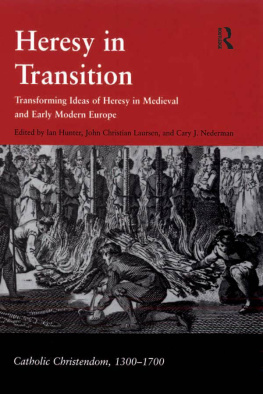
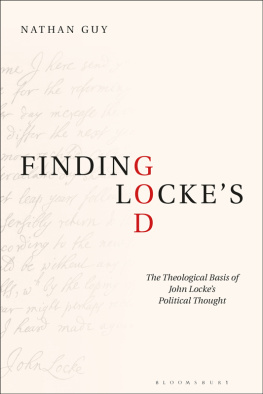
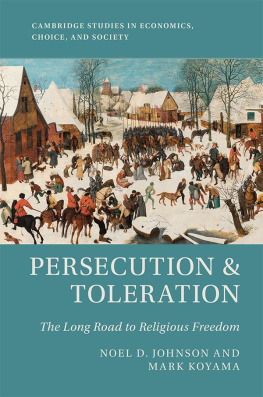
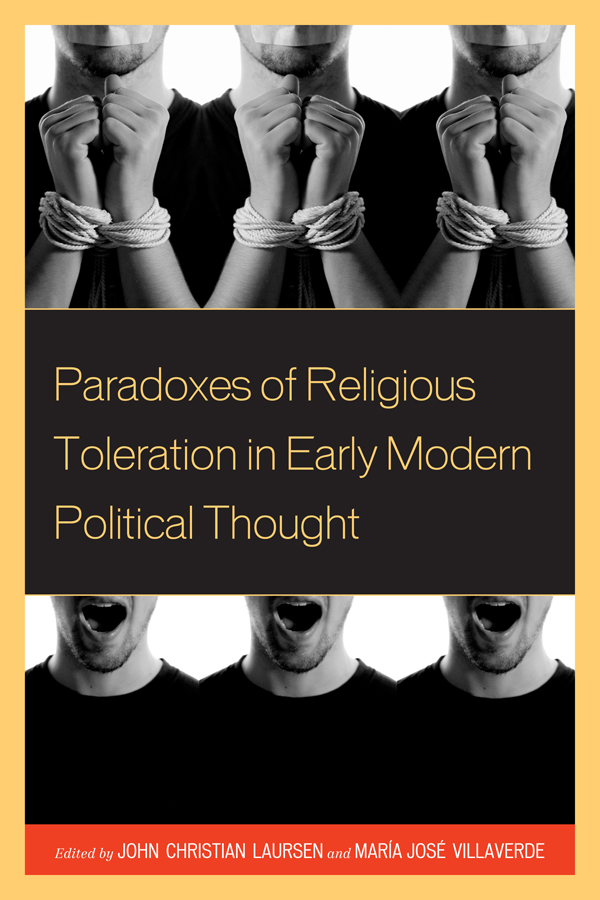
 The paper used in this publication meets the minimum requirements of American National Standard for Information Sciences Permanence of Paper for Printed Library Materials, ANSI/NISO Z39.48-1992.
The paper used in this publication meets the minimum requirements of American National Standard for Information Sciences Permanence of Paper for Printed Library Materials, ANSI/NISO Z39.48-1992.